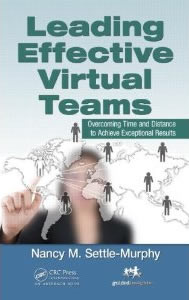This is the time of year when we turn our thoughts to giving. But for many of us, that’s where we stop. Just because we have noble intentions, it doesn’t mean we automatically get more time in our busy days to be generous to others, when we’re barely keeping our heads above water ourselves.
According to Wharton prof and “giving” expert Adam Grant, a culture of giving can reap big payoffs for givers, receivers and the organizations they work in. When employees act like givers, says Grant, they facilitate efficient problem-solving and coordination and build cohesive, supportive cultures. Sounds great in theory, but in reality, we still don’t have any more hours in the day.
Ever since I read Grant’s (highly-recommended) book, Give and Take, I’ve been thinking about practical ways I can be more generous to others, while maintaining a sane work-life balance. As I created the list below, I realized that I have been doing some of these things all along, but not in a consistent, intentional way. It’s the intentionality of giving that makes all the difference. As you read this list, see what tips might work for you, or which ideas you can add to the list.
You may also want to check out some pithy quotes about giving at the end of this article.
- Give people your undivided attention. Whether you’re speaking with several colleagues or meeting 1:1, put aside everything else you have going on (including all devices within reach) , and really focus on the conversation. If you’re face to face, maintain eye contact and observe both audible and physical cues. If you’re meeting virtually, close your eyes or take notes to listen deeply. Don’t rush your response. Make your colleagues feel that they are far more important to you than your email, IM, text or Facebook post. While giving someone your full attention doesn’t seem like much, for many of us, it’s become one of the toughest things to do.
- Share the wealth. If you stumble upon a website, blog, article or book that you found incredibly helpful, chances are others will, too. Stop and take a few minutes to let others know why you found it interesting, along with a brief description, whether through email, IM, posting in a shared portal, blog, Reddit, etc. Another idea: Set aside a few minutes during team meetings so everyone can share some of their favorite resources, effectively creating a shared resource bank.
- Contribute your wisdom. Instead of simply trolling various knowledge bases to take what you need, make sure to at least occasionally leave something of your own in return. This might take the form of a template you’ve created, a sample client report or a killer set of interview questions. When we take Girl Scouts camping, we tell them they must leave the campground at least as good as they found it. It’s a similar concept: Take what you need, and give something in exchange. The more you contribute, the more likely others will be to follow your lead. (Speaking of sharing wisdom so that others might benefit, here’s a great set of meeting principles and operating guidelines contributed to our readers by my client at the Boston National Park Service.)
- Make an introduction. Find ways to leverage your connections to help others. Offer to provide a referral to your colleague who’s struggling. Suggest people your co-worker can contact to learn how they solved a similar vexing situation. Make introductions to people who you know will really benefit by getting to know each other. (Example: “Jane, you and Jia have both worked for big consulting firms, and may have some great ideas to share.”) Offer to send an email of introduction or make a quick call on their behalf. If you’re not sure the other person will warmly welcome your colleague’s request, check first and find out the preferred contact method.
- Just say thanks. Expressions of gratitude shouldn’t ever go without saying. People appreciate being thanked in almost any format, even if it’s via a quick email or text. Better, of course, is a call, an actual note, or some small token of appreciation. Doling out thanks is one of the easiest ways you can be generous, whether it’s recognizing someone for going that extra mile, delivering a critical report on time, or contributing so many great ideas on that last team call.
- Respond to requests with alacrity. If a colleague asks for help, put aside all but the most critical tasks for a moment and respond immediately, especially if the need seems urgent. You may not be able to give him what he needs right away, but you can let him know you received his request and will attend to it ASAP. Set realistic expectations and clear boundaries as to how you might be able to help, and when. And if you know you really won’t be able to help at all, point him to other possible sources of help. Saying no is okay, as long as you don’t leave him hanging, and always try to offer up other possible avenues for help.
- Teach your colleagues well. Instead of volunteering to create that blog or spiff up that pivot table for your colleague, go one better. Take the time to show her how to do it herself. (This doesn’t mean you’re refusing to do the requested task – you’re simply doing it with her.) Then next time she has to do it, she may not need to ask for help. Even better: Find a little time to jot down a few notes she can refer to next time. Maybe some of your other colleagues can benefit from your “quick reference guide,” too. By giving your time to teach someone how to become self-sufficient, you both reap immediate rewards.
- Offer thoughtful feedback. Asking your colleague for her permission first makes your feedback feel much more like a gift than a critique. Such feedback might take the form of a casual coaching session, a more structured assessment of particular skills, or some recent observations you’d like to share, along with suggested tips, if warranted. Many of us are in a good position to help others, but we tend to shy away from tough conversations. Reach out to offer feedback that can help your colleagues shine. Chances are, they may have no idea how they’re doing until someone tells them. And this is one case where the giver should feel free to ask for the same “gift” in return, especially if feedback from your own manager is infrequent.
Giving to others doesn’t have to take a lot of time. In fact, the more you build this “sharing” mentality into your day-to-day work, the less extra time it will take. You may need to set boundaries for yourself and others about what kind of help you’re willing and able to give, and under what circumstances. By sharing more freely of yourself, not only will you sit up a little straighter, but your entire organization can stand to profit-especially if others follow your lead.
Links
Guided Insights links – past Communiqués
Eight Great (Almost-free) Year-Round Gifts Everyone on Your Team is Bound to Love
Speed Connections, Strengthen Collaboration with the Right Social Networking Tools
Rewarding, Recognizing and Celebrating Achievements from Afar
Other Helpful Links
Great set of meeting principles and operating guidelines, a gift to our readers from the Boston National Park Service and Boston African American National Historic Site
Give and Take, book by Adam Grant. The discussion guide for his book poses some great questions.
Is Giving The Secret to Getting Ahead? New York Times magazine, March 27, 2013
Reaping the Rewards of Giving – Human Resource Executive Online
Women, Work and the “Girl Scout Tax” in Wall St. Journal online – Provocative piece about why a Girl Scout’s relentless can-do attitude in the workplace may not help female employees get ahead
Quotes on Giving – from BrainyQuote.com
For it is in giving that we receive – St. Francis of Assisi
Generosity is giving more than you can, and pride is taking less than you need – Khalil Gibran
Kindness in words creates confidence. Kindness in thinking creates profoundness. Kindness in giving creates love. – Lao Tzu
Time and money spent in helping people to do more for themselves is far better than mere giving. – Henry Ford




